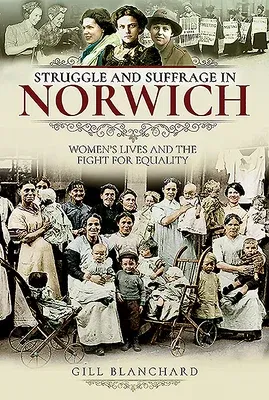This book focuses on how there was more to women's history than just the
suffrage campaign and women's war work by looking at the broader context
of women's achievements.
The book is divided into themes looking at education, work, marriage,
relationships, health and maternity, poverty and housing, and the
involvement of women in political parties and campaigns for social and
legal reforms, including the right to vote.
It explores these themes through the lives of both the well-known and
women who rarely, if ever, make the history books. The stories of
Norwich women such as Mabel Clarkson, the first female sheriff in
England, and one of the first women councillors and Lady Lord Mayor; and
Dorothy Jewson, the first female MP in Norwich and East Anglia, provide
the backdrop to the history of campaigns against poverty and women's
right to vote.
Drawing on published and unpublished material held in the record office
and heritage center, the National Archives, museums and private
collections, this book explores the lives of individual women to chart
transformational changes in society at large, and Norwich in particular.
These social, political and legal changes can be traced through the
lives of divorcee Elizabeth Gurney; suffragette Miriam Pratt; nurse
Philippa Flowerday, blacksmith Elizabeth Sabberton; economist and writer
Harriet Martineau and abolitionist and writer Amelia Opie, and numerous
schoolteachers, clerks, tradeswomen, weavers, WWI munitionettes and
more.

